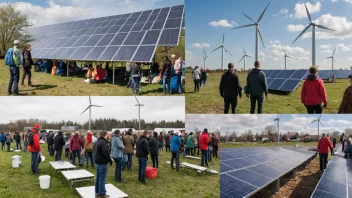Eco-friendly travel is an increasingly popular way to explore the world while minimizing your environmental impact. This travel style not only benefits the planet but also has profound positive effects on local communities. Here, we answer some common questions about the benefits of eco-friendly travel for local areas.
What are the key benefits of eco-friendly travel for local communities?
The key benefits include:
- Economic Boost: Eco-friendly tourism supports local businesses, creating jobs and generating income for local residents.
- Preservation of Culture: Responsible travelers often engage with local traditions, helping to preserve cultural practices and heritage.
- Environmental Conservation: Eco-tourism often funds conservation efforts, protecting local flora and fauna.
- Community Empowerment: Eco-friendly initiatives encourage local participation in tourism planning and management, leading to sustainable development.
How does eco-friendly travel impact the local economy?
Eco-friendly travel contributes to the local economy by:
- Supporting Small Businesses: Eco-tourists tend to favor locally-owned accommodations, restaurants, and tour operators, injecting money directly into the community.
- Creating Job Opportunities: The rise in eco-tourism generates employment in various sectors, from guiding to hospitality.
- Encouraging Sustainable Practices: Economic incentives help communities adopt sustainable practices, ensuring long-term economic viability.
What role does eco-friendly travel play in environmental conservation?
Eco-friendly travel plays a significant role in environmental conservation through:
- Funding Conservation Projects: A portion of eco-tourism profits often goes towards local conservation initiatives, helping protect endangered species and habitats.
- Raising Awareness: Eco-tourism educates travelers about local environmental issues, promoting a culture of conservation.
- Encouraging Sustainable Practices: Eco-friendly travelers often support practices that reduce waste and conserve resources, leading to more sustainable environments.
How can travelers ensure their trips are eco-friendly?
Travelers can ensure their trips are eco-friendly by:
- Choosing Sustainable Accommodations: Look for hotels and lodges with eco-certifications.
- Supporting Local Economies: Purchase food and crafts from local vendors instead of large chains.
- Minimizing Waste: Bring reusable items like water bottles and shopping bags.
- Respecting Natural Resources: Follow guidelines for wildlife observation and avoid disturbing natural habitats.
What are some examples of eco-friendly travel initiatives?
Examples of eco-friendly travel initiatives include:
- Wildlife Reserves: Many countries have established wildlife reserves that promote conservation while allowing visitors to experience nature.
- Community-Based Tourism: Programs that allow travelers to stay with local families, gaining authentic experiences while supporting the community.
- Eco-Lodges: Accommodations designed with sustainability in mind, often using renewable resources and minimizing their carbon footprint.
Can eco-friendly travel be affordable?
Yes, eco-friendly travel can be affordable. Many eco-friendly options are budget-friendly, especially if you:
- Travel Off-Peak: Prices for eco-lodges and tours often drop during off-peak seasons.
- Use Local Transport: Instead of taxis, consider public transport or biking, which are often cheaper and more sustainable.
- Stay Longer: Many eco-lodges offer discounts for longer stays, making it easier to enjoy an extended eco-friendly vacation.
In conclusion, eco-friendly travel is not just a trend; it’s a way to make a meaningful impact on the places we visit. By choosing eco-friendly practices, travelers can bolster local economies, promote environmental conservation, and enrich their own travel experiences. As we continue to explore our planet, let us do so with respect and responsibility, ensuring that our adventures leave a positive legacy for future generations.






